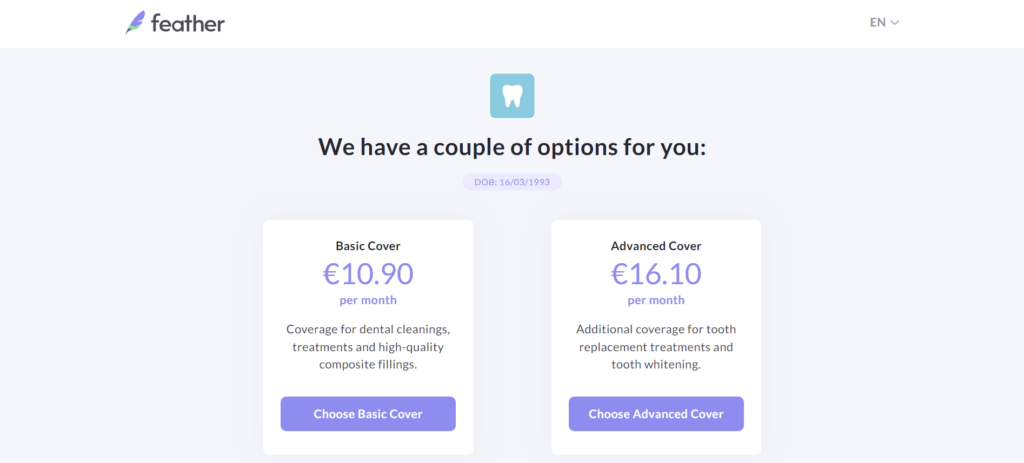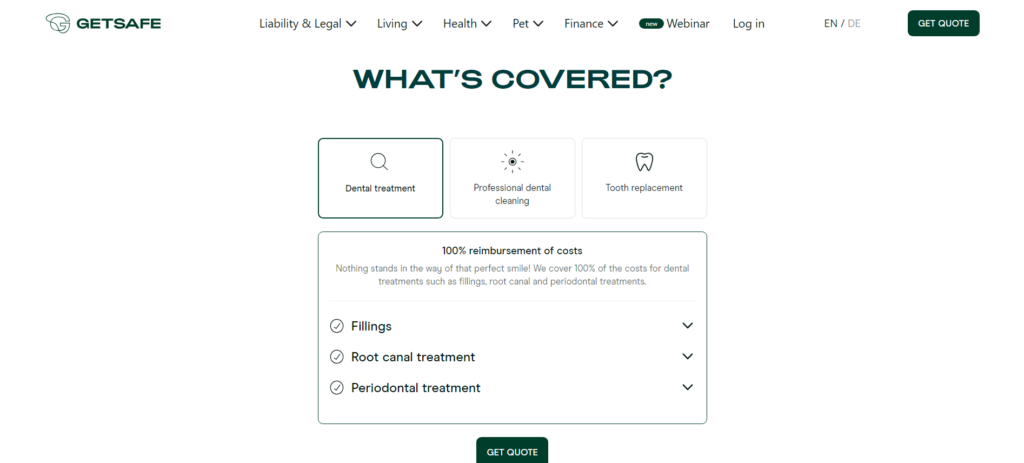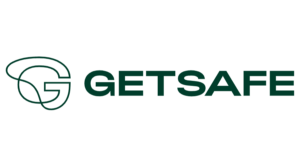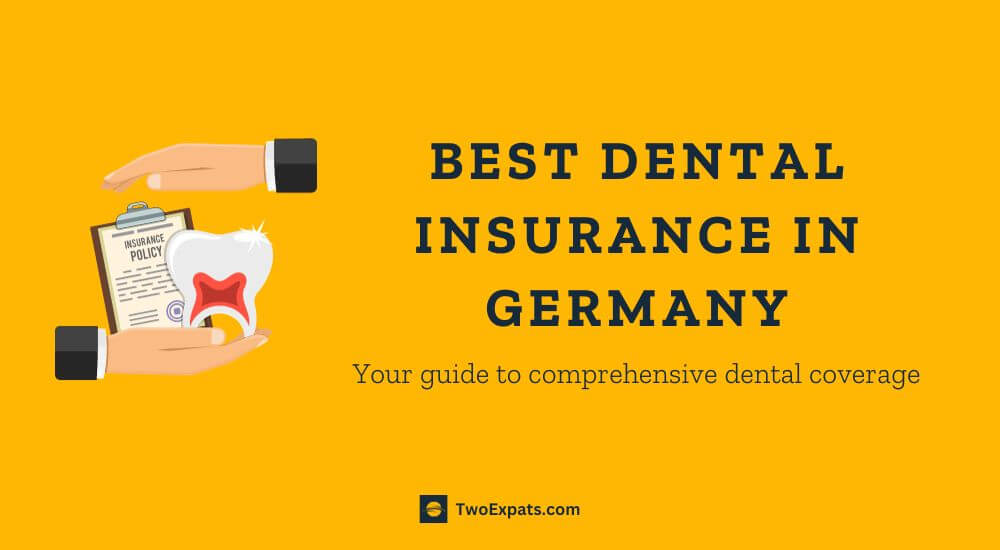As an expat in Germany, it can be tricky to navigate the country’s dental care system. We all know dental care is essential to your overall health.
However, dental treatments can quickly become a budget-buster, draining you out of hundreds or even thousands of dollars.
Fortunately, there are dental insurance options that can help you save a lot of money. In this article, we will answer all your burning questions about dental insurance in Germany. Feeling confident in choosing the best option for you is the goal.
Tag along with a smile as we guide you through the intricacies of dental insurance in Germany.
Quick Summary
- Public health insurance in Germany covers only basic dental treatments.
- Supplemental dental insurance is often needed to cover more advanced procedures.
- Factors such as age, overall health, and pre-existing conditions will influence insurance costs.
- Companies with 100% digital and English services (Ottonova, Feather, Getsafe) offer additional coverage for as little as 8.80€/month.
We cover in this article:
How Does the German Dental Care System Work?
You’ll be happy to know that dental care in Germany is one of the best in the world.
Highly qualified dentists, advanced technology, and high-quality standards make Germany a top country for dental care.
It’s also very important for you to be well-informed about the best dental insurance for your specific situation. This will give you peace of mind and security next time you have to go to the dentist.
Now, let’s find out how the German dental care system works and what role insurance plays.
Does German Public Health Insurance Cover Dental Care?
Public Health Insurance covers dental care but with limitations.
As you may know by now, public health insurance is mandatory for all German residents, including expats. This is known as statutory health insurance (“Gesetzliche Krankenversicherung” or “GVK”).
Unfortunately, the German government has been making reductions in its dental coverage.
Statutory health insurance typically covers basic treatments such as:
- Regular check-ups every six months
- Professional dental cleaning (polish and scale) every year
- Basic fillings (plastic filling material is the standard)
- Wisdom teeth removal
And partial coverage for treatments such as:
- Dental bridges
- Dental crowns
- Partial and full dental prostheses
- Implant crowns (only in a single tooth gap where the gums and neighboring teeth are healthy)
- Periodontal treatments
Treatments like dentures, bridges, or crowns need to be medically necessary for functional reasons to be covered.
If you’re looking for cosmetic dental treatment, public insurance will likely not cover you.
Typically, dental procedures such as dentures, crowns, and bridges are partially covered by up to 60% of costs.
This can increase to 65% after 5 years and even up to 70% after 10 years.
However, that is only possible if you go regularly to the dentist for preventative appointments.
Important
If you earn less than €1,246 a month, public insurance will cover 100% of the costs.
Many people with public insurance end up getting supplemental dental insurance (Zahnzusatzversicherung) for some extra coverage. More on that later.
Before having any dental treatment, make sure you ask your dentist for a cost estimate (Heil- und Kostenplan). It needs to be approved by your insurance provider.
Our Pick for dental insurance
Does German Private Health Insurance Cover Dental Care?
Yes, private health insurance (Private Krankenversicherung, or PKV) offers more comprehensive coverage for dental care than public health insurance. However, the level of coverage will depend on your individual dental insurance plan.
Private dental insurance typically covers up to 85% of the costs of some dental work, but not all.
Similar to statutory health insurance, private health insurance will have its limitations.
Although there’s good coverage for major dental work, make sure you get approval from your insurer before starting treatments. You don’t want unpleasant surprises in the end.
Depending on your private insurance plan, you can get advanced dental treatments such as root canals, dental surgeries, and dental prostheses covered.
Important
Be aware that some insurers have an “exclusion period” (Wartezeit) for new clients. This means you may not be able to claim any coverage within the first few months of taking out the policy.
Additional Dental Insurance (Zahnzusatzversicherung)
Additional Dental Insurance exists as a supplement to public and private insurance.
It’s mostly used by people who only have public health insurance and feel the need for extra cover. It may not be necessary or even possible if you already have private insurance.
The cost of supplemental dental insurance will depend on your individual plan and the range of treatments that are covered. It can offer up to 100% coverage.
For expats like you, there are English-speaking companies that will help you out. You can learn more about them later in this article.
Why Do You Need Dental Insurance In Germany?
First of all, dental care is essential for your health. Neglecting your teeth can lead to gum disease, dental decay, or even dental loss. Dental insurance in Germany includes coverage for preventive treatments like cleanings and check-ups.
This preventive dental care will help you maintain sparkling oral health and catch issues early. In turn, it reduces the need for expensive treatments later on.
Dental treatments can be pricey, especially if you require more extensive dental procedures like root canals or orthodontic treatment.
Additional dental insurance can help mitigate the financial burden by covering at least part of the cost.
It’s also important to have dental insurance because dental emergencies can happen at any time.
If you have dental coverage, you’ll be able to seek immediate dental treatments without the burden of costs out of your own pocket.
Last but not least, your peace of mind is priceless. Dental insurance in Germany is a safety net that will remove the stress of not being able to afford necessary dental treatments.
Dental Care Costs In Germany
Dental treatment costs vary according to several factors, such as the insurance plan you have and the location of the dental practice.
Let’s take a look at an estimation of the costs for common dental treatments in Germany.
How much does a dental checkup cost in Germany?
Without dental coverage, a dental checkup in Germany will cost you anywhere between 30€ and 150€. X-rays will influence the cost.
Public health insurance will cover check-ups every six months, and private health insurance typically covers most routine appointments.
How much is Teeth Cleaning in Germany?
A professional teeth cleaning costs around 60€-150€.
Usually, public health insurance will cover the complete cost of a simple professional cleaning once a year. If you need a more in-depth, intensive cleaning, you may need to cover part of the cost.
Private health insurance will usually cover the procedure in full.
How much does a tooth filling cost in Germany?
The cost of tooth fillings will depend on the material used.
Public health insurance will cover cheaper materials like amalgam and cement fillings. Without insurance, the basic fillings would cost you around 20€ to 50€.
Public insurance covers the standard procedure of composite fillings (tooth-colored) in the front, visible teeth, and amalgam (metallic) fillings in the posterior teeth.
If you want composite fillings in the back teeth instead of amalgam fillings, you have to pay the difference.
Composite fillings will cost you between 60€ to 200€. More expensive materials, like gold or ceramic, can cost anywhere from 400€ to 900€.
How much does supplemental dental insurance cost in Germany?
The cost of supplemental dental insurance will depend on the dental insurance providers and the level of coverage you choose, your age, and your overall health.
The prices can range from 8€ to 60€ a month.
How are dental services reimbursed?
The reimbursement process for dental insurance in Germany will vary depending on whether you have public health insurance, private health insurance, or supplementary dental insurance.
It will also depend on your insurance policy, so make sure you get well-informed about how your insurance provider works.
Typically, on your first visit to the dentist, they’ll collect your insurance information, either public or private, from your insurance card.
After your dental treatment is done, your dentist will be paid directly by your insurer. You’ll then receive an invoice in the mail/email for any remaining balance that you need to pay.
After you’ve made your payment within the provided deadline, you can then submit the invoices to your supplemental dental insurance for reimbursement, if you have such coverage.
Oftentimes, there’s a waiting period of a few weeks before any reimbursements are carried out.
Some providers also cap their dental coverage to a fixed amount in the first year, anywhere between 500€ and 5000€.
What Does Dental Insurance In Germany Cover?
Dental insurance in Germany can cover a wide range of dental treatments, depending on your dental insurance plan.
Let’s have a breakdown of what you can expect to be covered with your supplemental dental coverage.
What should be covered in the Supplemental Dental Insurance?
Almost all dental procedures will get either full or partial reimbursement. Please note that these are general guidelines with rough estimations.
It will always depend on your age, health, and provider of choice. Always consult the terms and conditions of your insurance policy before undergoing any dental procedures.
Dental Treatments | Dental Insurance - Germany | Level of supplemental coverage | Range of cost without insurance |
Regular checkups | 80% to 100% coverage | 30€ - 150€ |
Professional cleanings | 80% to 100% coverage | 60€-150€ |
Tooth Fillings | 80% to 100% coverage | 20€ - 900€ (depending on material) |
Dental crowns | 50% to 100% coverage | 200€ - 2000€ (depending on material) |
Dental bridges | 50% to 100% coverage | 200€ - 2000€ (depending on material) |
Implants with ceramic crown | 50% to 100% coverage | 1500€ - 4000€ |
Root canal treatment | 70% to 100% coverage | 200€ - 1200€ |
Orthodontic treatments | 0% to 100% coverage (if you’re over 21, coverage may be more limited) | 2000€ - 8000€ |
Mouthguards | 70% to 100% coverage | 50€ - 500€ |
Dental Prostheses/tooth replacement | 50% to 100% coverage | 300€ - 5000€ |
Periodontal treatment | 70% to 100% coverage | 80€ - 3000€ |
Additional anesthesia services | 70% to 100% coverage | 100€ - 800€ |
Emergency dental services | 80% to 100% coverage | 50€ - 600€ |
Preventative treatments (eg.: fluoride and sealants) | 80% to 100% coverage | 20€ - 100€ |
Teeth whitening | 0% to 50% | 300€ - 1000€ |
What is not covered by supplemental dental insurance in Germany?
Your additional dental insurance may have exclusions regarding pre-existing or ongoing treatments and conditions.
This means that dental treatments for issues before the dental insurance policy was effective may not be covered. There’s also usually a waiting period of a few months before any reimbursements are carried out.
Some additional dental insurance plans may not cover orthodontic treatments such as braces and aligners. If this is something you plan to get, make sure you select a policy that includes this benefit.
Cosmetic procedures, like teeth whitening or veneers, are usually not covered by supplemental dental insurance. These procedures are typically considered elective and cosmetic and not medically necessary.
Important
Be also aware that most policies have plans with coverage limits, which means if you go over that limit on your dental costs, the insurance won’t cover those additional costs.
Dentists in Germany
Finding a good dentist in Germany won’t be too challenging.
The biggest hurdle for expats like you may be the language barrier, but you can overcome this with a bit of time and research.
Do Dentists in Germany Speak English?
Many dentists speak a good level of English. These are highly educated professionals who will be accommodating to patients who don’t speak English yet.
In major cities like Berlin, Munich, Frankfurt, and Hamburg, you’re more likely to find dentists who speak English.
In rural areas, it may be more difficult to find English-speaking dentists, but don’t get discouraged.
Make sure you do your research and, if needed, contact your local dentist’s clinics.
Other suggestions include seeking recommendations from other expats in your local community or asking for help from your dental insurance provider.
There are also apps such as Doctolib that make it easy to find English-speaking dentists as they would list that information on their profiles.
Emergency dentists
Emergencies are bound to happen. It’s possible to get an emergency dentist outside of working hours.
Your public or private health insurance will likely cover the expenses, depending on the treatment.
You’ll be able to access the services of an emergency dentist through the Zahnärztlicher Notdienst website.
This website will give you information about dentists available to provide urgent care even on weekends and holidays.
Dental Insurance Companies In Germany
There are several dental insurance companies in Germany that provide comprehensive dental coverage and offer English services.
If you want extra protection besides your general health insurance and more dental treatments covered, these providers will help with that.
The best dental insurance provider for you will depend on several factors, such as the type of treatments you may need to do, your age, dental health, and budget.
Let’s have a brief overview of three digital companies that offer you additional dental insurance: Ottonova, Feather, and Getsafe.
These companies offer a high-quality alternative to traditional insurance companies and 100% digital, English-based services.
1. Ottonova
Founded in 2017, Ottonova offers additional private dental insurance that has extensive coverage for a number of treatments.
In 2020, Ottonova won the most prestigious consumer product test for supplementary dental health insurance.
This insurance company offers three plans: Economy Class, Business Class, and First Class.

Some of the main general benefits include no waiting time, very fast reimbursement, and monthly cancellations. The final prices will depend on your age.
Economy Class starts at 8,80€ a month and includes:
- Professional dental cleaning up to 70€/year;
- Dental treatments like plastic fillings, periodontal and root canal treatments (100%)
- Dental prosthesis (100% if public health insurance covers it partially)
- Dentures, including implants and inlays (70%)
- Functional analytical and functional therapeutic services (70%)
Business Class starts at 9,81€ and includes all Economy class benefits plus:
- Orthodontics for children (85%-100%)
- Two professional cleanings up to 70€ per cleaning
- Therapy services (85%)
First class starts at 15,42€ a month and adds to all the other benefits:
- All procedures have 100% coverage
- Orthodontics for adults (100%)
- Additional anesthesia coverage (100%)
- 2 professional cleaning up to 90€ per cleaning
2. Feather
Feather is a modern insurance company in Germany, offering services in English and digitally, with no waiting period.
They have a Basic Plan and an Advanced plan.

The Basic Plan starts at 10,90€ a month and includes:
- Professional teeth cleaning up to 150€ a year
- Dental procedures like periodontal and root canal treatment, composite fillings, mouthguards, and anesthetics
- Orthodontics up to 2000€/year for <21 years old
All treatments have unlimited coverage starting from the third year of the insurance.
The Advanced Plan starts at 16€/month and offers the most comprehensive coverage, including the basics plus:
- Unlimited professional cleaning
- Tooth replacement procedures
- Teeth Whitening (up to 200€ every 2 years)
Important
In the advanced plan, restorative treatments have capped coverage for the first four years.
3. Getsafe

Getsafe is another all-digital, English-speaking insurance company that puts out a straightforward offer of one basic plan. This plan starts at 9,21€ and includes:
- Professional dental cleaning up to 80€ a year
- Fillings, periodontal, and root canal treatments (100%)
- Tooth replacement treatments (75%)
Getsafe has no waiting period. However, they don’t cover the costs of treatments that were advised, planned, or started before purchasing the insurance.
FAQs
It will depend on your health insurance.
Public insurance generally covers their part of the dental treatment cost right away. With private insurance, you generally have to pay upfront and then provide your insurer with receipts for reimbursement.
No, by rule, it’s not only not needed, but you usually are not allowed to have both.
Private health insurance will generally provide the necessary coverage for your needs.
Without insurance, dental work in Germany can be expensive.
That is why it is important to choose the best dental insurance for your specific needs. The right dental insurance will guarantee more accessible dental care.
Yes, teeth extractions are considered basic procedures and are covered by public health insurance.
However, replacement procedures may only be covered by supplementary dental insurance.
Generally, the waiting period to submit dental bills after starting the policy is between 3 and 8 months.
However, there are insurance companies (like the ones we discussed before) that have no waiting period.
Conclusion
Dental insurance in Germany can be a challenging topic for expats. With the right knowledge, you’ll be able to make well-informed decisions for your dental health.
Dental insurance is a great way for you to avoid high out-of-pocket costs, so don’t neglect this task!
It’s always recommended that you compare and research insurance providers. This way, you’ll have a deep understanding of the coverage details, limitations, and requirements.
Fortunately, there are companies like Ottonova, Feather, and Getsafe that can give straightforward information in English and have plenty of benefits, starting at low costs.
Healthy, sparkling teeth don’t have to ruin your wallet, so make sure you get the best protection for your needs.




